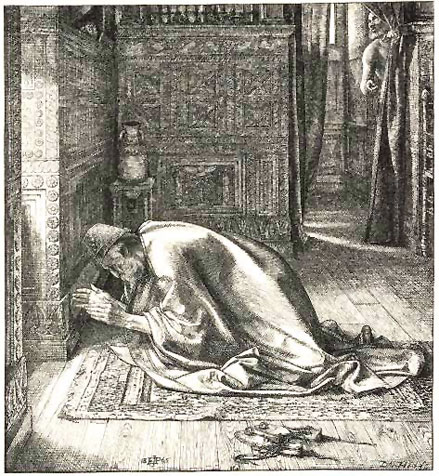Four Winds

A new Adam (High Priest) ruled the wild animals of the Gentile kingdoms, but without a king this rule would be truly priestly. Daniel prefigured the nature of this new kingdom: obedience would bring persecution, and suffering as witnesses before the Gentiles would be the means of Gentile conversion. A new Israel would be the initial fulfilment of the despised, suffering priestly servant of Isaiah 53. When the Lord scattered His people for their sin, He also spread them to the four winds as witnesses to the empire.
Their initial failure was epitomised by Mordecai’s instruction to Esther to hide her identity. This resulted in Haman being exalted to the right hand of the Power instead of a Jew. It was Esther’s witness that dethroned the serpent, and allowed Mordecai, as a new Daniel, to steer the empire for the benefit of the people of God. This was Israel’s job during the restoration era.
By the time of Christ, their compromise with Greek philosophy and then Roman political power had rendered them slaves in Egypt. The new “Pharaoh” didn’t know Joseph (Mordecai). It took a new scattering of witnesses to complete the work of the Restoration era in the empire.
The gospels are four winds, four “living creatues” that carried the throne of God throughout the nations under Roman rule. Matthew presents Jesus as a new Moses, who flees Egypt, is baptized in the river, resists temptation in the wilderness for 40 days, and then preaches about the law from a mountain. Mark corresponds to the Davidic covenant. Mark shows Jesus as a man of action, a man on the move, a conquering king. Luke shows us Jesus in a more cosmopolitan setting, corresponding to the Restoration, when the Jews were scattered among the Gentiles and called to bear witness. John, the climax of the gospels, brought the church fully into the New Covenant. John shows us Jesus as the Son of God.1
“But be on your guard. For they will deliver you over to councils, and you will be beaten in synagogues, and you will stand before governors and kings for my sake, to bear witness before them. And the gospel must first be proclaimed to all [the] nations.” (Mark 13:9-10)
And this gospel of the kingdom will be proclaimed throughout the whole [ruled land] as a [witness] to all [the] nations, and then the end will come.” (Matthew 24:3-14)
As a “witness to all the nations” of the Oikoumene, the preaching of the gospel was the fulfilment of the Restoration Covenant, the high priesthood of Joshua.
______________
1 See Peter J. Leithart, BIBLICAL HORIZONS No. 72, Covenant Recapitulation in New Testament History

























